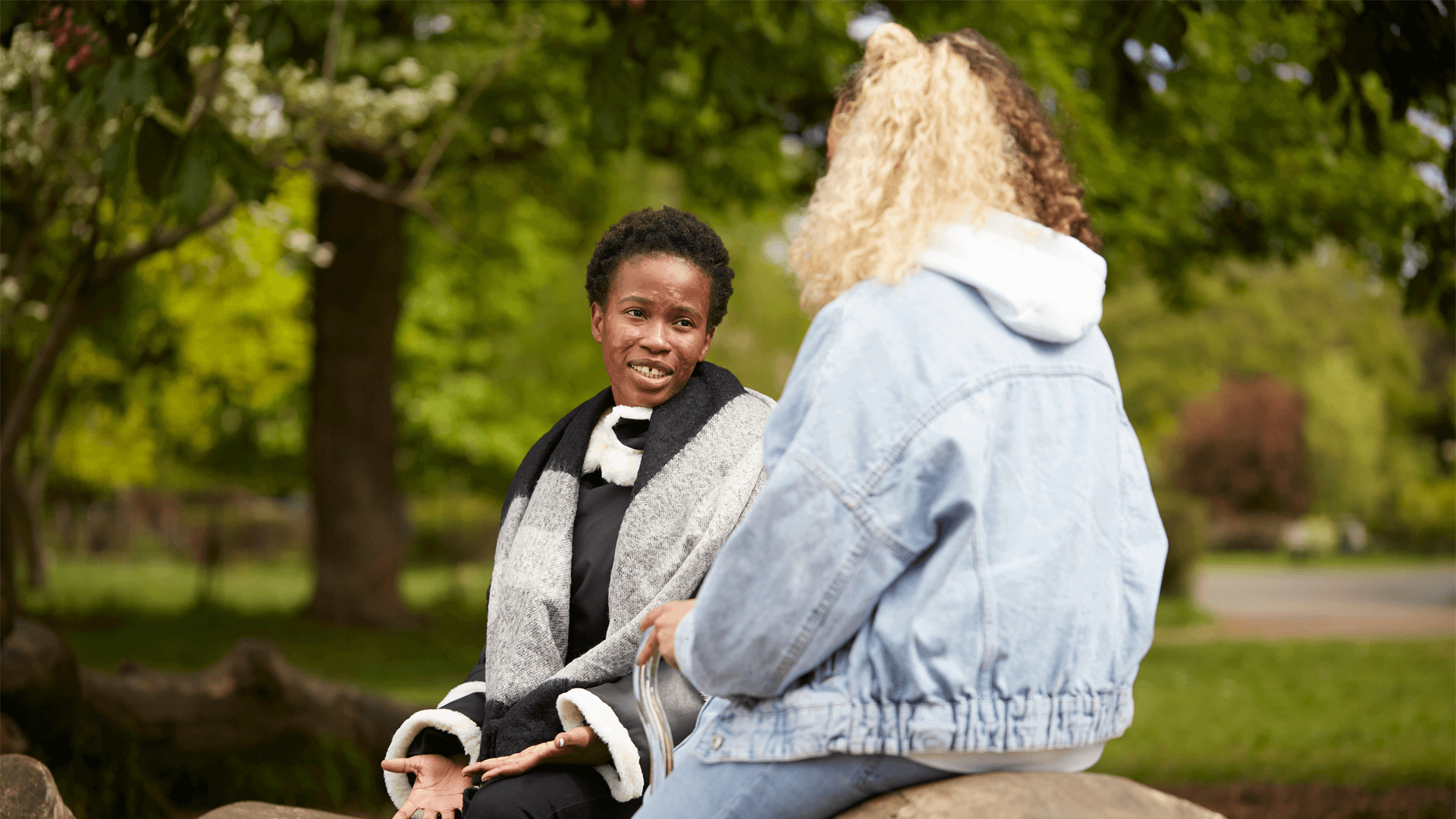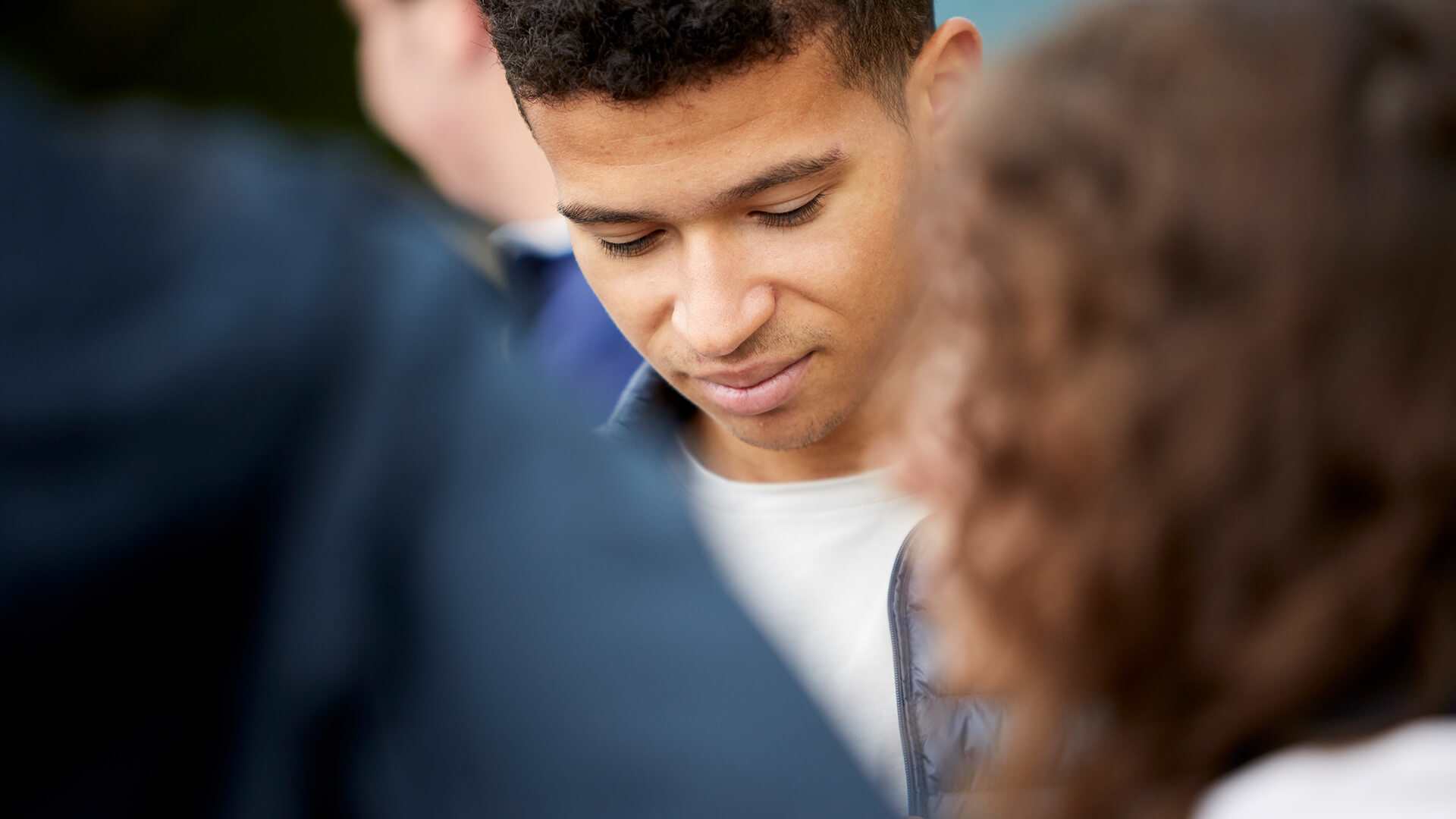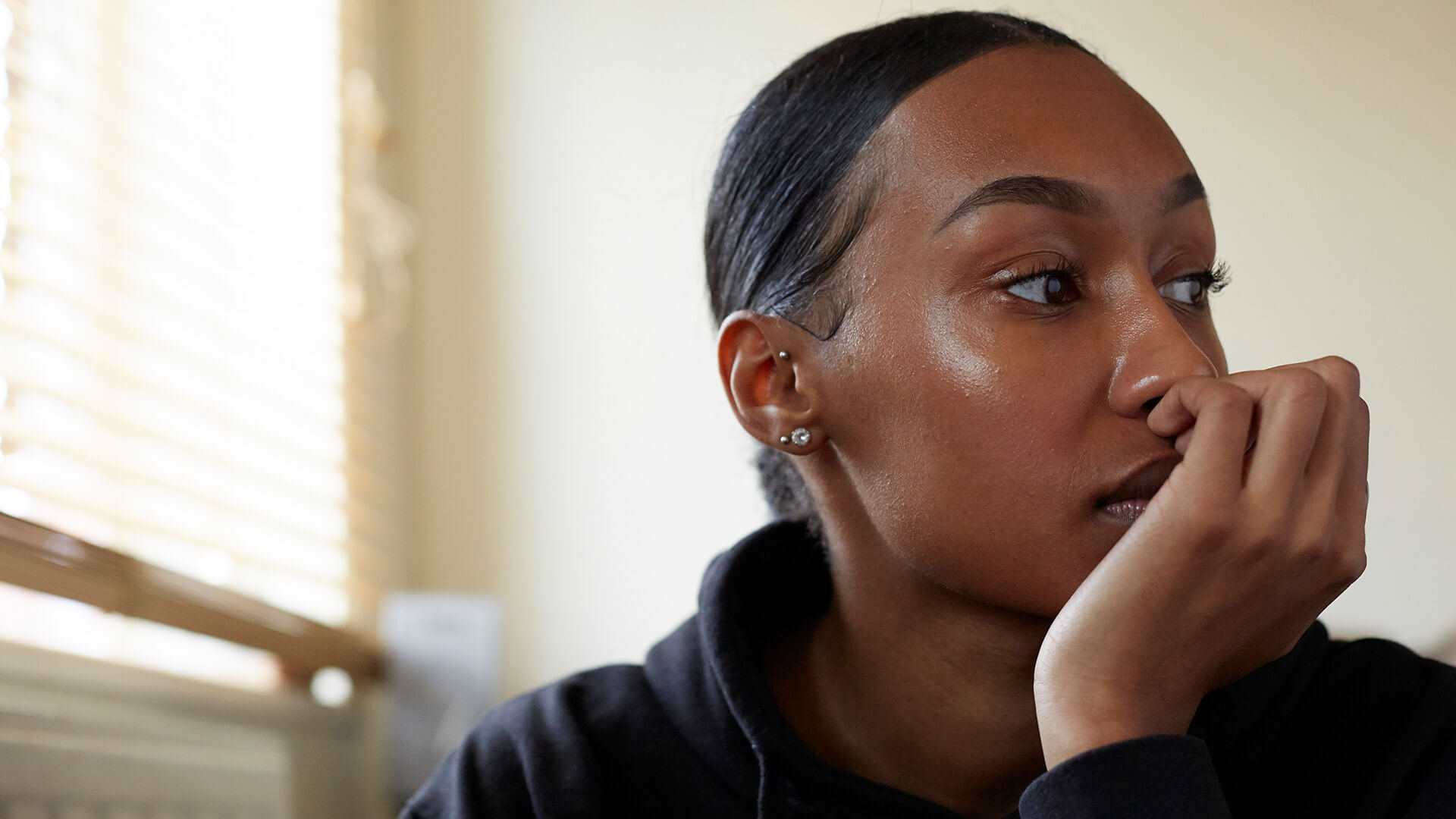What is a phobia?

A phobia is an extreme fear of an object, person, animal, activity, place, feeling or situation. Having a phobia is more than just being afraid of something; it is a type of anxiety disorder.
When we are afraid of something, it is normal natural to want to avoid that thing where we can, but we generally don’t think about it much (unless the thing that makes us scared is right in front of us) when we aren’t confronted with it and it doesn’t change how we live our lives. But someone with a phobia may feel anxious just thinking or talking about their fear. This can have a real impact on their day-to-day life, and they may make decisions based on avoiding the object of their phobia.
I wish people knew that having a phobia is more than just being scared or afraid of something.
Symptoms of a phobia

Symptoms of a phobia can include:
- feeling overwhelmed
- increased heart rate
- panic attacks
- sweating
- shortness of breath
- shaking
- feeling dizzy or unsteady
- nausea
- upset stomach
These symptoms can be really distressing, but the important thing to remember is that help is available. With the right support, you can overcome a phobia.
Common types of phobias
People can develop phobias about a wide range of things, but they generally fall into two categories:
- specific phobias
- complex phobias
Specific phobias
Specific phobias are phobias about a specific item, object or situation. Examples of specific phobias include:
- animal phobias – e.g. spiders, snakes, dogs
- bodily phobias – e.g. being sick, choking, having injections
- situational phobias – e.g. small spaces, going to the doctor, flying
- environmental phobias – e.g. heights, germs, water
These are just a few examples; there are many more things you can have a phobia about. You may feel embarrassed about your phobia, or feel like you are the only one who feels this way. But whatever your phobia is about, help is available and you are not alone.
Complex phobias
Complex phobias are phobias about a severe fear or anxiety of certain situations, circumstances or feelings. They tend to affect people’s lives even more negatively than specific phobias, but these phobias are still treatable with the right help.
The two most common examples of complex phobias are:

My treatment for emetophobia was one of the scariest things I’ve done, but it was all worth it. Me and my therapist compiled a list of things related to sick that would scare me, and we numbered them based on how scared I would be. I then had to work up the list, looking at pictures and listening to sounds, and learning to cope with the feeling of absolute fear and discomfort that they created. With each week, we worked up a level. After six weeks, I was obviously not cured, but I was loads better than when I started.
Agoraphobia is a fear of being in situations that it would be difficult to get out of - or where it would be difficult to get help in - if things go wrong. Sometimes agoraphobia can develop as the result of struggling with a specific phobia, for example if you are anxious about seeing something you have a phobia about when you are outside.
Someone with agoraphobia may find it difficult to do everyday things, such as:
- go to school, college, university or work
- use public transport
- do things on their own
When anxiety is extreme, they may find it difficult to leave home at all.
Social phobia, also known as social anxiety disorder, is an extreme fear of social situations.
It’s normal for us all to feel shy or anxious about social situations sometimes, but social phobia is more severe and long-term. Someone with social phobia may:
- find social situations extremely anxiety-provoking
- worry about doing something embarrassing in front of others
- worry about interacting with others in everyday situations, such as when shopping, studying or working, or making a phone call
This can be really hard to deal with and make life very challenging, but with the right support things can get better.
In the end, what worked best for me was actually exposing myself to my phobia in a process called ‘flooding’.

Why do I have a phobia?
People develop phobias for all sorts of reasons, but there are a few factors which may make you more likely to develop a phobia, such as:
- experiencing a traumatic incident
- having panic disorder, or struggling with anxiety
- having negative experiences in the past with the object of your phobia
How having a phobia can affect your mental health
Having a phobia might impact your mental health by making you feel:
These feelings may be worse if you have a phobia of something that is difficult to avoid in daily life.
However your phobia is affecting you, know that there are people who can help you. With the right support in place, you can feel better and learn to better manage your fears or overcome them.
How to cope with phobias
Whatever your phobia is, and however much or little it affects your daily life, you do not have to live with it.
Here are some things you can do that might help:
- Learn some breathing techniques and grounding techniques you can use to help manage your anxiety in the moment.
- Speak to someone you trust about how you’re feeling.
- Talk to your doctor if your phobia is seriously impacting your life. They can let you know what support is available and discuss next steps with you.
Talk to someone you trust about your phobia. Try not to get put off if you don’t get the response that you wanted - it’s important to remember that most people are not experts in phobias.
Getting help
It can be really scary to seek help for a phobia, especially if arranging an appointment with a doctor may involve you being exposed to your fear. If this is the case, there are things you can do to make it easier:
If you are worried about speaking to someone over the phone, you can book an appointment online with most GP surgeries. If your GP surgery doesn’t have an online booking form, you could try emailing them instead.
If you are worried about attending an appointment on your own, you can bring someone with you to offer support or wait with you.
If you let your doctor know about any concerns you have before your appointment begins, or any specific words, actions or situations that may trigger your phobia, they can take these into account.
If you are anxious about leaving the house, you can check if your GP offers home visits or online appointments.
Treatment for phobias
There are different treatment options available which your GP can talk to you about. What works for you will depend on you as an individual.
The main treatment for phobias is therapy, but your doctor might also offer you medication to help you manage with any symptoms of anxiety. See below for more information.
Counselling and therapy
The most common type of therapy used to treat phobias is cognitive behavioural therapy (CBT) – in particular, a process called exposure therapy. Exposure therapy involves slowly and gradually exposing yourself to the subject of your phobia, with the support of a therapist.
For example, if you have a phobia of bugs, you may begin by reading an article about a bug, then look at an image of a bug, then be in the same room as a bug and slowly work up to the point where you hold a bug. This is just an example and the process will look different for different people; your therapist will guide you through this and won’t force you to do anything you don’t feel able to do.
The idea is that your anxiety about your phobia will decrease the more you expose yourself to it.
Medication
Medication isn’t normally used in the treatment of phobias, but your doctor may prescribe antidepressants (e.g. fluoxetine, sertraline, citalopram etc.) a type of tranquiliser called a benzodiazepine (e.g. diazepam), or beta-blockers (e.g. propranolol).
These will normally be used alongside therapy and can make it easier for you to manage your symptoms while you focus on the work you are doing with your therapist.
Find out more about the different types of medication used to treat mental health issues.
How can I support a friend or family member who has a phobia?
If you have a friend or loved one that is struggling with a phobia, your support can make a big difference. Struggling with a phobia can be really isolating, especially if the phobia is around something that doesn’t tend to cause anxiety in most people. Having a friend, family member or someone you trust on your side can make you feel more confident to face your challenges and overcome your phobia.
Here are some ways you can support a friend or loved one who has a phobia:
-
Take their phobia seriously
You may not understand it and you may not even understand how someone could have that phobia, but remember that it is very real to them. Let them know that their feelings are valid.
-
Ask them what they find triggering
For some people with a phobia, even talking about the thing they are afraid of can cause them to feel anxious, fearful or overwhelmed. If you ask them what they find triggering, you can be careful when talking about it.
-
Encourage them but don’t pressure them
It can be helpful to have someone to encourage you to face your fear, but it can also be harmful if to pressure someone to do something they aren’t comfortable with. Try speaking to your friend about what feels possible for them and ask if it would help them if you encouraged them to do it
-
Help them with distraction and grounding techniques
When they are exposed to their phobia and experiencing anxiety, it can be really helpful to support them with a distraction or a grounding technique. On our blog, Kerry (16) shares a grounding technique that helps her when she's anxious.
-
Encourage them to get help if they need it
They might find it scary to reach out for help or go to see a doctor on their own. But they may find it helpful for you to support them by offering to go to the doctor with them, if you feel comfortable to do so.
-
Remember that it's not all on you
You don't have to have any solutions and it’s okay if you don’t know what to say or how to help them. You don’t have to take responsibility for their recovery; often just being there is enough.
More information and support
Get help now
Where to get help
If a phobia or any type of anxiety is making life difficult you are not alone. Here are some services that can support you.
-
No Panic
Supports people struggling with panic attacks, phobias, obsessive compulsive disorder (OCD) and other anxiety-related issues - and provides support and information for their carers.
Offers a specialist youth helpline for people aged 13-20. The opening hours are 3pm - 6pm, Monday - Friday; 6pm - 8pm, Thursdays and Saturdays.
Call 01952 680835 for a recorded breathing exercise to help you through a panic attack (available 24/7).
Information about call costs here.
- Opening times:
- 10am - 10pm, 365 days a year
-
Childline
If you’re under 19 you can confidentially call, chat online or email about any problem big or small.
Sign up for a free Childline locker (real name or email address not needed) to use their free 1-2-1 counsellor chat and email support service.
Can provide a BSL interpreter if you are deaf or hearing-impaired.
Hosts online message boards where you can share your experiences, have fun and get support from other young people in similar situations.
- Opening times:
- 24/7
-
The Mix
Offers support to anyone under 25 about anything that’s troubling them.
Email support available via their online contact form.
Free 1-2-1 webchat service available.
Free short-term counselling service available.
- Opening times:
- 3pm - 12am, seven days a week





